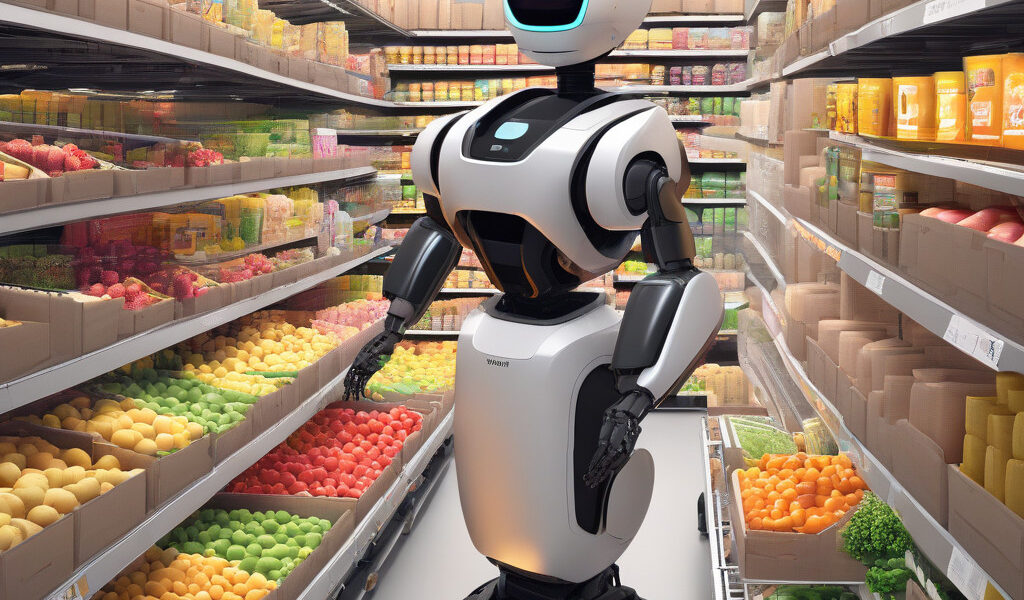AI boosts online grocery revenue by 8%, claims data
AI Boosts Online Grocery Revenue by 8%, Claims Data
Artificial Intelligence (AI) has been revolutionizing the way businesses operate across various industries, and online grocery is no exception. Recent data suggests that implementing AI technologies can significantly impact the revenue of online grocery stores, with an impressive increase of 8%. This statistic underscores the immense potential AI holds for enhancing the e-commerce experience and driving sales in the ever-competitive retail landscape.
One of the key ways in which AI contributes to the growth of online grocery revenue is through personalized recommendations. By leveraging machine learning algorithms, e-commerce platforms can analyze customer data to understand preferences, purchase history, and browsing behavior. This information enables AI to suggest relevant products to customers, increasing the likelihood of conversion. For instance, if a customer regularly buys organic products, the AI system can recommend new organic items or special promotions tailored to their interests, ultimately leading to higher sales.
Moreover, AI-powered chatbots offer another avenue for boosting online grocery revenue. These virtual assistants provide real-time support to customers, helping them navigate the website, locate products, and address any inquiries they may have. By offering personalized assistance round the clock, AI chatbots enhance the overall shopping experience, leading to increased customer satisfaction and loyalty. Additionally, chatbots can upsell or cross-sell products based on customer interactions, further driving revenue for online grocery stores.
Furthermore, AI plays a crucial role in optimizing pricing strategies for online grocery retailers. Dynamic pricing algorithms powered by AI analyze various factors such as demand, competitor pricing, and inventory levels to adjust prices in real-time. This allows e-commerce platforms to offer competitive prices while maximizing profits. For example, during periods of high demand, AI can automatically increase prices slightly to capitalize on customer willingness to pay, thus driving revenue growth.
In addition to enhancing the customer experience and optimizing pricing, AI can streamline operations and improve efficiency in online grocery businesses. AI-powered inventory management systems can forecast demand, prevent stockouts, and automate replenishment processes. By ensuring that popular products are always in stock and minimizing excess inventory, AI helps online grocery stores reduce costs and increase overall profitability.
The impact of AI on online grocery revenue is further amplified by its ability to analyze and leverage data for targeted marketing campaigns. AI algorithms can segment customers based on their preferences, behavior, and demographics to create personalized marketing strategies. By delivering relevant content, promotions, and recommendations to specific customer segments, online grocery stores can increase engagement and drive conversions. For instance, AI can identify customers who frequently purchase baby products and target them with promotions for baby food or diapers, effectively boosting sales within that segment.
In conclusion, the data confirming an 8% increase in online grocery revenue due to AI highlights the transformative power of artificial intelligence in the e-commerce sector. By harnessing the capabilities of AI for personalized recommendations, chatbot support, dynamic pricing, inventory management, and targeted marketing, online grocery retailers can enhance the customer experience, drive sales, and ultimately increase revenue. As AI continues to evolve and shape the future of e-commerce, businesses that embrace these technologies stand to gain a competitive edge in the digital marketplace.
#AI, #OnlineGrocery, #RevenueBoost, #Ecommerce, #RetailIndustry












